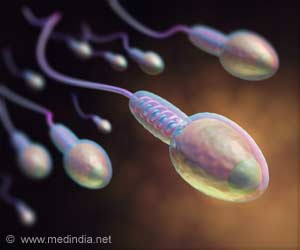A new study may put to rest the debate that circumcised men don’t get as much sexual sensation as uncircumcised men, by finding that the common belief doesn’t hold any truth.
A new study may put to rest the debate that circumcised men don’t get as much sexual sensation as uncircumcised men, by finding that the common belief doesn’t hold any truth.
The study was performed at the Department of Psychology of McGill University in Montreal by a team of researchers led by Kimberley Payne, Ph.D.As a part of their study the researchers conducted genital sensory testing on circumcised and uncircumcised men during states of sexual arousal and non-arousal.
They found that there was no difference between the two groups in sensitivity to touch or pain.
“This study suggests that preconceptions of penile sensory differences between circumcised and uncircumcised men may be unfounded,” says Kimberley Payne.
Co-author of the research Dr. Yitzchak M. Binik, hoped that the study would spawn off more research in this field.
“People have been arguing about the sexual effects of circumcision for at least 1,000 years and I hope these data will encourage more research,” Dr Binik said.
Dr Binik is also Professor of Psychology at McGill and Director of the Sex and Couple Therapy Service of the McGill University Health Center.
Irwin Goldstein, Editor-in-Chief of The Journal of Sexual Medicine observed that the study was important for more than one reason.
“In this fascinating study performed by renowned sexual medicine researchers, not only do they dispel the myth that the glans penis is more sensitive in the uncircumcised male due to the protective function of the foreskin, but they show that both circumcised and uncircumcised participants were less sensitive to touch overall during sexual arousal. This appears to be an important factor in the normal sexual response and pleasure,” he said.
“While more research is needed, diminishing genital sensitivity during sexual arousal may be an important factor helping protect against pain during sexual activity,” he added.
The authors also note that the presence of scar tissue formation from circumcision, as well as functional and mechanical changes related to sexual activity, are factors that may have secondary effects on genital sensitivity and should be considered in future research.
The study appears in The Journal of Sexual Medicine.
Source-ANI
LIN/C










